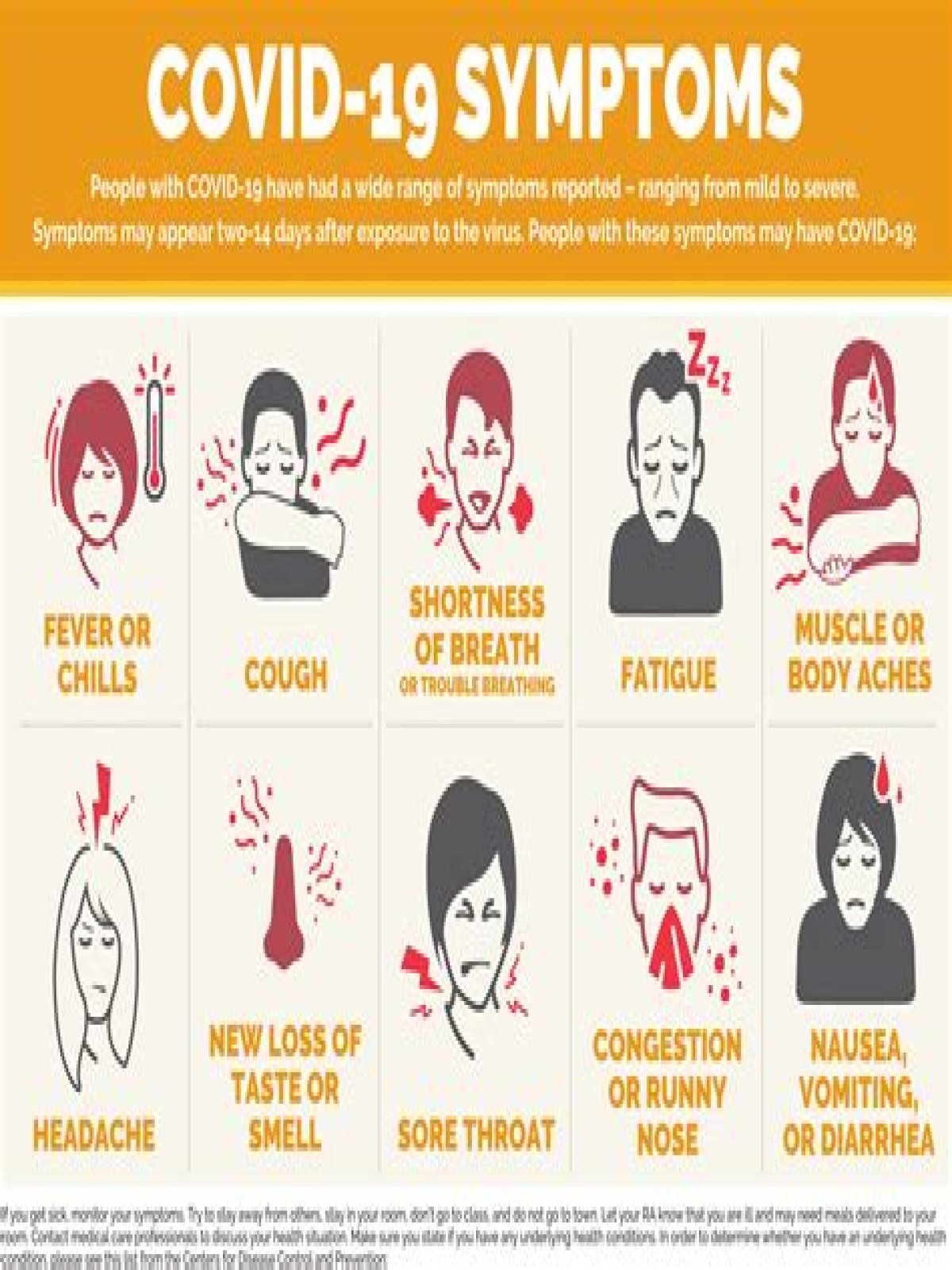The most common symptoms of COVID-19 are fever, dry cough, and tiredness. Other symptoms that are less common and may affect some patients include loss of taste or smell, aches and pains, headache, sore throat, nasal congestion, red eyes, diarrhoea, or a skin rash.
How common is severe coronavirus disease?
Most people (81%) develop mild to moderate symptoms (up to mild pneumonia), while 14% develop severe symptoms (dyspnea, hypoxia, or more than 50% lung involvement on imaging) and 5% of patients suffer critical symptoms (respiratory failure, shock, or multiorgan dysfunction).
What should I do if I have symptoms of COVID-19?
Stay home and self-isolate even if you have minor symptoms such as cough, headache, mild fever, until you recover. Call your health care provider or hotline for advice. Have someone bring you supplies. If you need to leave your house or have someone near you, wear a medical mask to avoid infecting others.If you have a fever, cough and difficulty breathing, seek medical attention immediately. Call by telephone first, if you can and follow the directions of your local health authority.
Are smokers more likely to develop severe disease with COVID-19?
Tobacco smoking is a known risk factor for many respiratory infections and increases the severity of respiratory diseases. A review of studies by public health experts convened by WHO on 29 April 2020 found that smokers are more likely to develop severe disease with COVID-19, compared to non-smokers.
Are people of a particular age vulnerable to coronavirus disease?
People of all ages can be infected by the COVID-19 virus.Older people and younger people can be infected by the COVID-19 virus. Older people, and people with pre-existing medical conditions such as asthma, diabetes, and heart disease appear to be more vulnerable to becoming severely ill with the virus.
Can COVID-19 affect the respiratory tract?
COVID-19 can affect the upper respiratory tract (sinuses, nose, and throat) and the lower respiratory tract (windpipe and lungs).
What should I do if I feel unwell during the COVID-19 pandemic?
See full answer• Know the full range of symptoms of COVID-19. The most common symptoms of COVID-19 are fever, dry cough, and tiredness. Other symptoms that are less common and may affect some patients include loss of taste or smell, aches and pains, headache, sore throat, nasal congestion, red eyes, diarrhoea, or a skin rash.• Stay home and self-isolate even if you have minor symptoms such as cough, headache, mild fever, until you recover. Call your health care provider or hotline for advice. Have someone bring you supplies. If you need to leave your house or have someone near you, wear a medical mask to avoid infecting others.• If you have a fever, cough and difficulty breathing, seek medical attention immediately. Call by telephone first, if you can and follow the directions of your local health authority.• Keep up to date on the latest information from trusted sources, such as WHO or your local and national health authorities.
Which organs are most affected by COVID-19?
The lungs are the organs most affected by COVID-19 because the virus accesses host cells via the receptor for the enzyme angiotensin-converting enzyme 2 (ACE2), which is most abundant on the surface of type II alveolar cells of the lungs.
Do e-cigarette users get more severe symptoms of COVID-19 if infected?
There is no evidence about the relationship between e-cigarette use and COVID-19. However, existing evidence indicates that electronic nicotine delivery systems (ENDS) and electronic non-nicotine delivery systems (ENNDS), more commonly referred to as e-cigarettes, are harmful and increase the risk of heart disease and lung disorders. Given that the COVID-19 virus affects the respiratory tract, the hand-to-mouth action of e-cigarette use may increase the risk of infection.
How long should I self-quarantine if I have been exposed to COVID-19?
Those who may have been exposed to someone with COVID-19 and those who have recently travelled to a country or region with the widespread transmission have been advised to self-quarantine for 14 days from the time of last possible exposure.
Does tobacco use increase the risk of suffering from serious symptoms due to COVID-19?
Tobacco use may increase the risk of suffering from serious symptoms due to COVID-19 illness. Early research indicates that, compared to non-smokers, having a history of smoking may substantially increase the chance of adverse health outcomes for COVID-19 patients, including being admitted to intensive care, requiring mechanical ventilation and suffering severe health consequences.
Is self-isolation recommended for those with COVID-19?
Self-isolation at home has been recommended for those diagnosed with COVID-19 and those who suspect they have been infected. Health agencies have issued detailed instructions for proper self-isolation. Many governments have mandated or recommended self-quarantine for entire populations.
